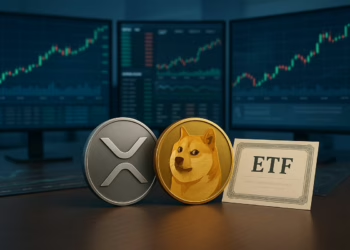Max Avery, a recognized voice in the crypto community, has touted Ripple’s potential to reshape the $27 trillion cross-border payment market through its technology and product offerings.
In a recent lengthy post on X, Avery detailed how Ripple’s solutions address critical pain points in traditional banking and, thus, position its native token, XRP, as a transformative asset for global transactions.
He pointed out that Ripple Payments, previously known as RippleNet, tackles the issues of high fees and the involvement of multiple intermediaries, which can cause traditional cross-border payments to take 3 to 5 days to complete. He explained that this solution streamlines the process by connecting financial institutions within a standardized network, allowing for real-time messaging and transactions.
Avery claimed that Ripple’s On-Demand Liquidity (ODL) feature, which uses XRP as a bridge currency, automates conversions and facilitates instant settlements across the XRP Ledger in 3-5 seconds. This continuous operation enables banks to reduce the need for capital-heavy nostro-vostro accounts traditionally used for foreign exchange, he noted.
Avery acknowledged the reluctance of banks to adopt new technologies, given their investments in legacy systems and risk-averse nature. He noted that the “restrictions exist due to lack of regulation in major corridors” influence these institutions’ decisions even if they have” positive sentiments towards what Ripple is able to offer.”
He, however, lauded Ripple’s approach of offering phased, hybrid solutions that integrate with existing fiat-based systems, allowing for gradual adoption of its technology.
Avery also commended Ripple’s proactive engagement with regulators, noting that this compliance-oriented approach is critical for its broader global adoption. He expressed optimism that future U.S. regulations may become more supportive of Ripple’s mission.
Avery believes competitive pressure from fintech and rising customer expectations are accelerating the demand for innovative payment solutions. He noted Ripple’s technology is well-positioned to meet these evolving needs.
Notably, Avery’s comments come as Ripple recently announced plans to add smart contract functionality to the XRP Ledger (XRPL). The firm noted that the planned upgrade aims to boost the programmability of the Layer 1 blockchain and enable developers to create customized applications, thus expanding the potential use cases for XRP in the evolving blockchain ecosystem.
If you want to read more news articles like this, visit DeFi Planet and follow us on Twitter, LinkedIn, Facebook, Instagram, and CoinMarketCap Community.
“Take control of your crypto portfolio with MARKETS PRO, DeFi Planet’s suite of analytics tools.”





















